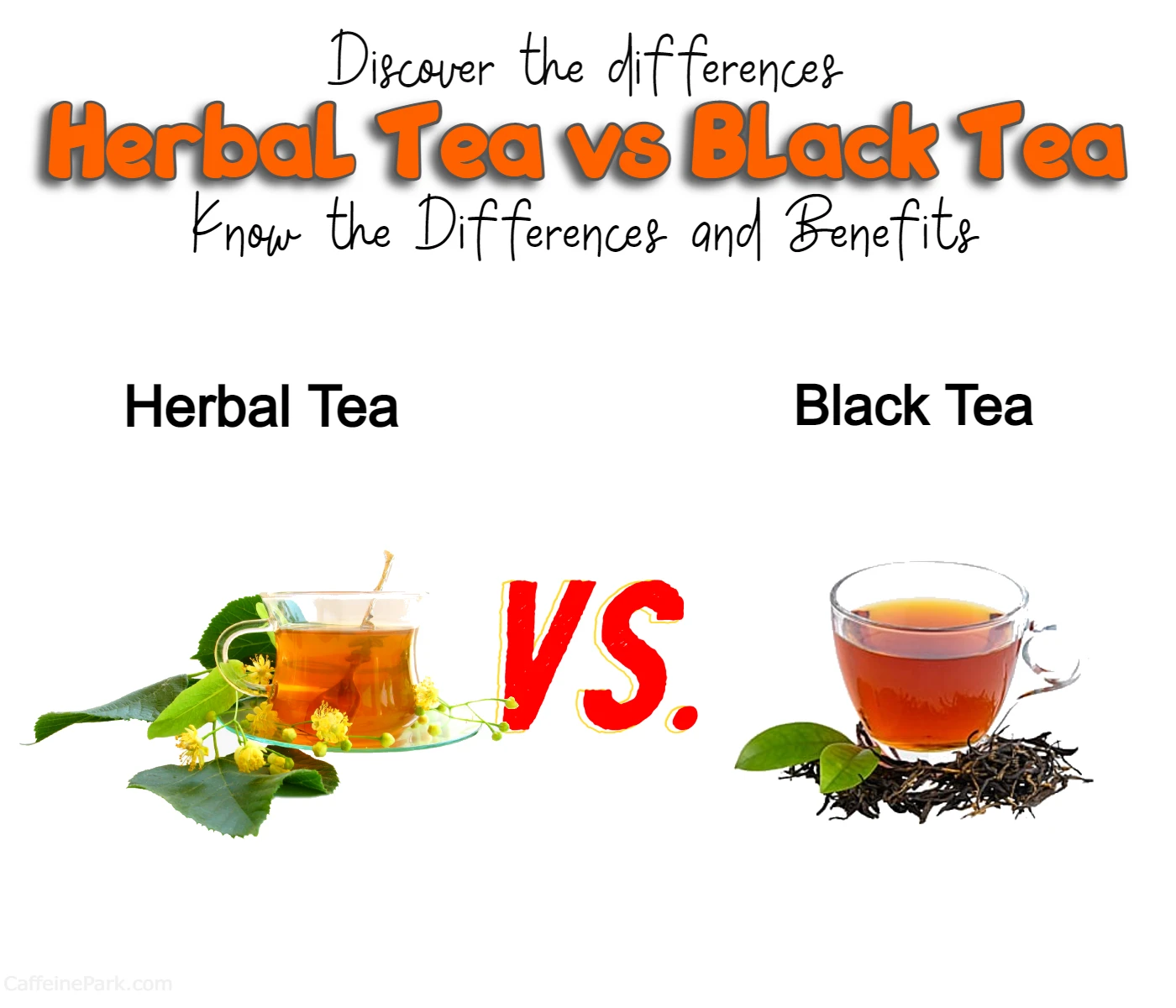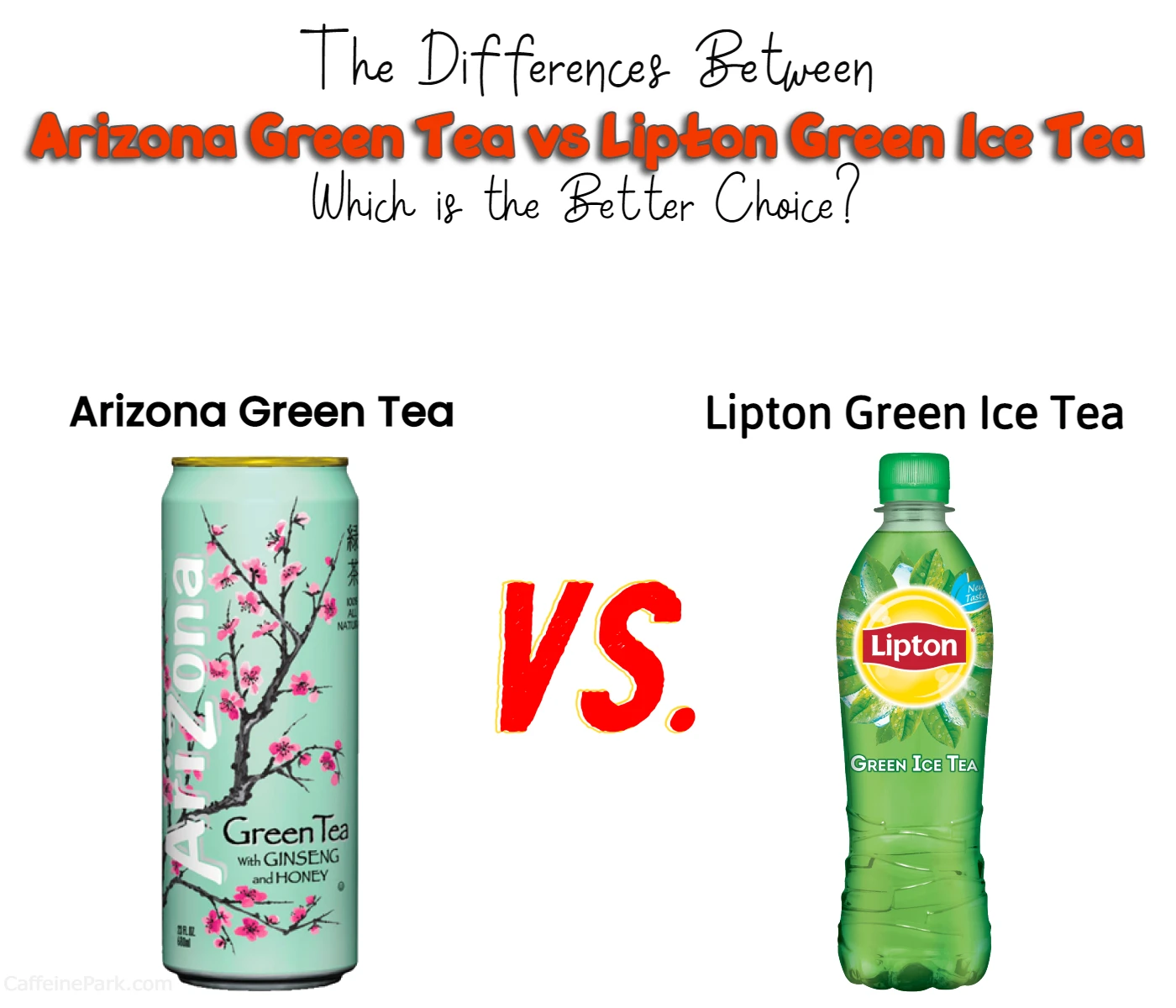
Are you a tea enthusiast looking for your next favorite tea? With so many options on the market, it can be overwhelming to decide which type of tea is right for you. That’s why we’re here to help! In this article, we’ll explore the key differences between herbal tea and black tea, two of the most popular tea varieties. By the end of this article, you’ll have a better understanding of which type of tea is best suited for your individual needs and preferences.
So, whether you’re a fan of bold and robust flavors or prefer a milder taste with potential health benefits, keep reading to find out more about herbal tea vs. black tea. We’ll cover everything from flavor and aroma to caffeine content and potential health benefits. Plus, we’ll discuss potential side effects and give you tips on how to choose the right type of tea for you.
Are you ready to learn more about herbal tea vs. black tea? Then keep reading to the end of this blog! Whether you’re a long-time tea lover or just getting started, understanding the differences between these two popular tea varieties can help you make an informed choice about which tea is right for you. So, brew up a cup of your favorite tea, sit back, and enjoy as we dive into the world of herbal tea vs. black tea.
Here’s a quick chart summarizing the differences between herbal tea and black tea:
| Black Tea | Herbal Tea | |
|---|---|---|
| Made from | Camellia sinensis | Variety of plants, fruits, and flowers |
| Flavor and aroma | Robust, malty, earthy, smoky | Wide range of flavors and aromas, such as floral, fruity, and spicy |
| Caffeine content | Contains caffeine, an average of 47mg per 8-ounce cup | Naturally caffeine-free |
| Health benefits | Contains antioxidants and polyphenols that can help lower blood pressure, reduce the risk of heart disease, and improve gut health | Benefits depend on the herbs used, such as anti-inflammatory and relaxing properties |
| Potential side effects | Excessive consumption may cause insomnia, anxiety, digestive issues, and headaches due to its caffeine content | Some herbs can cause allergic reactions, interact with medications, or cause stomach irritation or sedation in some individuals |
Introduction:
Tea is the most widely consumed beverage in the world, and there are many different varieties to choose from. Two of the most popular types of tea are black tea and herbal tea. While both types of tea have their own unique flavors and benefits, they are quite different in terms of their composition and the effects they have on the body. In this article, we will explore the differences between black tea and herbal tea, and help you choose which one is right for you.
What is Black Tea?
Black tea is made from the leaves of the Camellia sinensis plant, which is native to China and India. The leaves are harvested, withered, rolled, and then allowed to ferment or oxidize. This process gives the tea its distinctive flavor and color. Black tea is a rich source of antioxidants, which are compounds that help to protect the body from damage caused by free radicals. It also contains caffeine, which can help to boost energy levels and improve mental alertness.
What is Herbal Tea?
Herbal tea, also known as tisane, is not actually tea at all. Instead, it is made from the leaves, flowers, roots, and bark of various plants, which are infused in hot water. Herbal teas come in many different varieties, each with its own unique flavor and set of health benefits. Some of the most popular types of herbal tea include chamomile, peppermint, ginger, and rooibos. Unlike black tea, herbal tea is naturally caffeine-free, making it a great option for those who want to avoid stimulants.
Differences between Black tea and Herbal tea
Composition:
Black Tea Composition:
Black tea contains caffeine, theophylline, and theobromine, which are stimulants that can help to boost energy levels and improve mental alertness. It also contains flavonoids, which are antioxidants that can help to protect the body from damage caused by free radicals. The flavonoids in black tea are known as catechins, and they have been shown to have a number of health benefits, including reducing the risk of heart disease, lowering blood pressure, and improving cholesterol levels.
Herbal Tea Composition:
Herbal tea does not contain caffeine, theophylline, or theobromine, but it does contain a variety of other compounds that can have health benefits. For example, chamomile tea contains apigenin, a compound that has been shown to have anti-inflammatory and anti-cancer properties. Peppermint tea contains menthol, which can help to relieve symptoms of indigestion and irritable bowel syndrome. Ginger tea contains gingerols and shogaols, compounds that have anti-inflammatory and anti-nausea properties.
Flavor:
Black Tea Flavor:
Black tea has a strong, bold flavor that can be described as malty, smoky, or earthy. The flavor of black tea can vary depending on the region where it was grown and the processing methods used to make it. For example, Darjeeling tea from India has a floral and fruity flavor, while Assam tea from India has a bold and brisk flavor.
Herbal Tea Flavor:
Herbal tea comes in a wide variety of flavors, ranging from sweet and fruity to spicy and earthy. The flavor of herbal tea depends on the plants that were used to make it. For example, chamomile tea has a sweet, floral flavor, while peppermint tea has a refreshing, minty flavor. Rooibos tea from South Africa has a nutty, slightly sweet flavor.
Health Benefits:
Black Tea Health Benefits:
Black tea has been shown to have a number of health benefits, thanks to its high concentration of flavonoids. Some of the potential health benefits of black tea include:
- Reducing the risk of heart disease: Studies have shown that drinking black tea regularly can help to reduce the risk of heart disease. This may be due to the flavonoids in black tea, which can help to improve cholesterol levels and reduce blood pressure.
- Boosting mental alertness: Black tea contains caffeine, which can help to improve mental alertness and concentration. However, it is important to remember that too much caffeine can have negative side effects, such as anxiety and insomnia.
- Improving digestion: Some studies have suggested that black tea may help to improve digestion and reduce the risk of gastrointestinal disorders. This may be due to its ability to stimulate the production of digestive enzymes.
- Supporting immune function: Black tea contains antioxidants, which can help to support immune function and protect the body from damage caused by free radicals.
Herbal Tea Health Benefits:
Herbal tea also has a number of potential health benefits, depending on the plants that were used to make it. Some of the most common health benefits of herbal tea include:
- Reducing stress and anxiety: Some herbal teas, such as chamomile and lavender, have calming properties that can help to reduce stress and anxiety.
- Improving sleep: Certain herbal teas, such as valerian root and passionflower, have sedative properties that can help to improve sleep quality and duration.
- Relieving pain and inflammation: Herbal teas like ginger and turmeric have anti-inflammatory properties that can help to relieve pain and inflammation in the body.
- Boosting immune function: Many herbal teas contain antioxidants and other compounds that can help to support immune function and protect the body from damage caused by free radicals.
Side Effects:
Black Tea Side Effects:
While black tea is generally safe for most people to consume in moderate amounts, it does contain caffeine, which can cause negative side effects in some individuals. These may include:
- Insomnia: Consuming too much caffeine can interfere with sleep, making it difficult to fall asleep or stay asleep.
- Anxiety: Caffeine can stimulate the nervous system and increase feelings of anxiety and nervousness.
- Digestive issues: Some people may experience digestive issues, such as nausea, vomiting, or diarrhea, after consuming black tea.
- Headaches: Consuming too much caffeine can cause headaches or migraines in some individuals.
Herbal Tea Side Effects:
Herbal tea is generally considered to be safe, but it is important to be aware of potential side effects, especially if you are consuming large amounts. Some of the potential side effects of herbal tea include:
- Allergic reactions: Some individuals may be allergic to certain herbs used in herbal tea, such as chamomile or echinacea.
- Interactions with medications: Some herbs can interact with medications, so it is important to check with your healthcare provider before consuming herbal tea if you are taking any medications.
- Stomach irritation: Some herbal teas, such as peppermint, can cause stomach irritation or heartburn in some individuals.
- Sedation: Certain herbs, such as valerian root or kava, can cause drowsiness or sedation, so it is important to avoid driving or operating heavy machinery after consuming them.
Conclusion
Black tea and herbal tea are both popular beverages that offer a range of flavors and health benefits. While black tea is made from the leaves of the Camellia sinensis plant and contains caffeine, herbal tea is made from a variety of plants and is naturally caffeine-free. Both types of tea contain antioxidants and other compounds that can help to support health and well-being, but they may also have potential side effects in certain individuals. Ultimately, the choice between black tea and herbal tea will depend on your personal taste preferences and health needs.
Alternative to herbal tea and black tea
If you’re looking for an alternative to herbal tea and black tea, there are plenty of other options to choose from. Here are a few:
- Green tea: Like black tea, green tea comes from the Camellia sinensis plant, but it’s not oxidized like black tea. This results in a milder flavor and lower caffeine content. Green tea is known for its potential health benefits, including reducing the risk of heart disease and improving brain function.
- White tea: White tea is the least processed of all teas, making it the most delicate and light in flavor. It’s also the lowest in caffeine content. Like green tea, white tea has potential health benefits, including reducing the risk of heart disease and improving skin health.
- Rooibos tea: Rooibos tea, also known as red tea, comes from a plant native to South Africa. It’s naturally caffeine-free and has a sweet and slightly nutty flavor. Rooibos tea is rich in antioxidants and has potential health benefits, including reducing inflammation and promoting heart health.
- Chai tea: Chai tea is a spiced tea that originated in India. It’s typically made with black tea, but you can also find caffeine-free versions made with rooibos or other herbal teas. Chai tea has a bold and spicy flavor and is often enjoyed with milk and sweetener.
No matter what your preferences are, there’s a tea out there for you. So, why not try something new and explore the wide world of tea?
FAQs
Black tea contains antioxidants and other compounds that can help to improve heart health, boost mental alertness, improve digestion, and support immune function.
The health benefits of herbal tea depend on the plants used. Some herbs, such as chamomile and lavender, can help to reduce stress and anxiety, while others, such as ginger and turmeric, have anti-inflammatory properties that can help to relieve pain and inflammation.
Read More:





